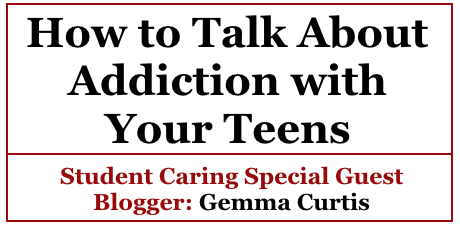Statistics show that far more youths abuse illicit drugs and alcohol than was initially thought. Recent surveys indicate that over nine per cent of youths aged 12 to 17 take illicit drugs, and over 14 per cent drink alcohol. This has serious effects, not only on the lives of children, but also those who are unwittingly injured or killed when youths under the influence take to the wheel. The Centers for Disease Control and Prevention, for instance, notes that in 2012, around 23 per cent of drivers aged 15 to 20 who were involved in crashes had been drinking. In 2013, meanwhile, 22 per cent of teens admitted that in the previous month, they had ridden in a car with an inebriated driver.
Alcohol and drugs are around and no doubt, your child or teen will come across an invitation to try an illicit substance. Therefore, prevention is key. Some of the following strategies may be helpful to you:
- Explain the cold hard facts about drugs: Many people think that drugs are something that can be experimented with, then easily set aside. In fact, many drugs (including opioids/heroin and cocaine) alter the brain’s reward system after just a few experiences. Even drugs like marijuana activate neurons in the brain because their chemical structure is similar to that of neurotransmitters. This leads to abnormal messages being sent through the network.
Drugs like cocaine or amphetamine, meanwhile, cause the brain to release abnormally large amounts of neurotransmitters, once again disrupting communication systems.
Most drugs flood the brain with dopamine, a feel-good hormone that regulates the way we feel pleasure, among many other things. Excessive levels of dopamine cause euphoria, prompting us to repeat the process of drug taking. It is vital that teens be aware of this process, and the fact that quitting often isn’t a matter of making a simple decision; rather, drugs can cause powerful withdrawal symptoms and interfere with our motivation to quit. Therefore, it is better never to start experimenting in the first place.
- Set high expectations for your children, without using threatening or aggressive language or body language. Let them know, for instance, that you expect them not to drink and drive, or get into a car with somebody who does. Ask them where they are going, what they will be doing, who is driving and when they will be home. With younger teens, make sure to set a reasonable curfew.
- Be there for your kids. Let them know that if at any time, they are uncomfortable because drugs are being taken at a party, or because the person who was going to drive them home has been drinking or taking drugs, you will gladly pick them up.
- Foster communication with your child. Listen to their stories about what occurs at school and at parties and try to strike a healthy balance between responsibility and freedom – that is, don’t be too quick to judge every action you don’t like; remember the bigger picture and focus on what is important. Safety should be your and your child’s paramount concern.
- Be vigilant. Observe the state your child is in when they come home. See if they are speaking normally and if they look alert and walk normally. If your child is taking drugs or drinking, seek help as early as possible, before their addiction becomes deeper.
- Lead by example. Make healthy choices your children can partake in and make them as fun as possible. One common trigger for drug use is distance from one’s parents and growing up in a household with a high tension factor. Some activities that can strengthen your bond with your child and foster a healthy lifestyle include outdoor sports, which have the added bonus of the soothing effects that simply being in nature can bestow. If stress is an issue because your child is worried about exams or because the family is going through a challenging moment (because of a divorce, death or other loss), hone in on stress busting activities with a proven track record – these include mindful meditation and yoga, two holistic philosophies that are so successful at soothing symptoms of anxiety and depression that they are important components of programs at drug rehabilitation centres across the nation.
Article from Gemma Curtis
We welcome your feedback to our work.
Email: General Information | Prof. David C. Pecoraro
Thank you!
Daniel & David
###
How to Talk About Addiction with Your Teens


0 Comments